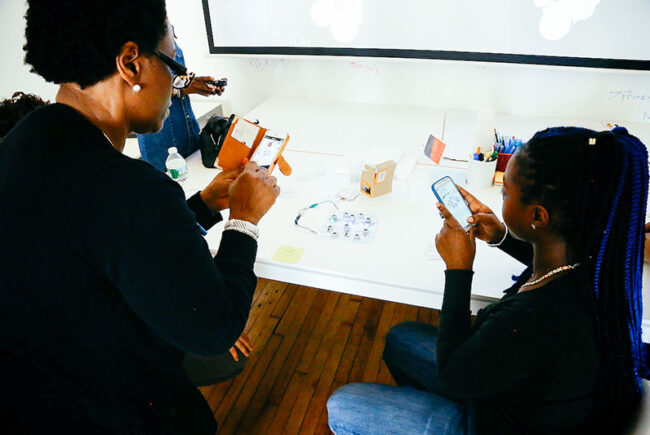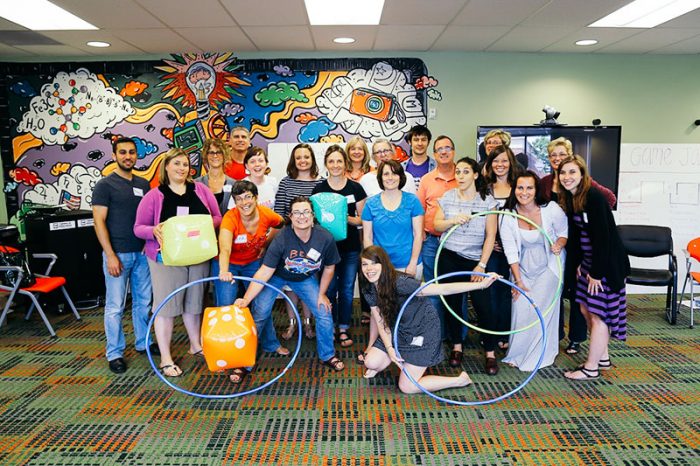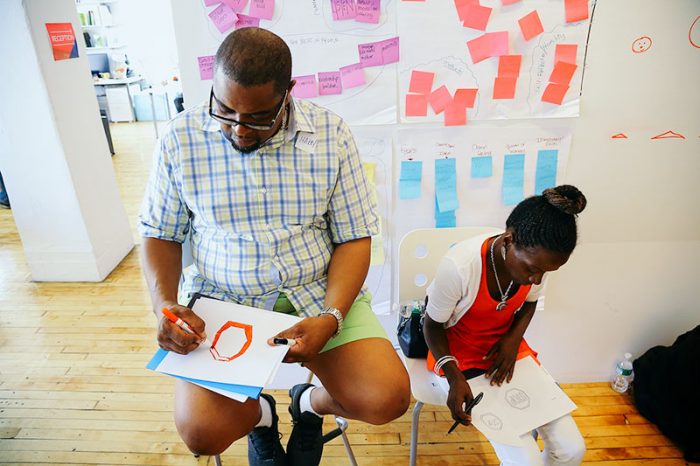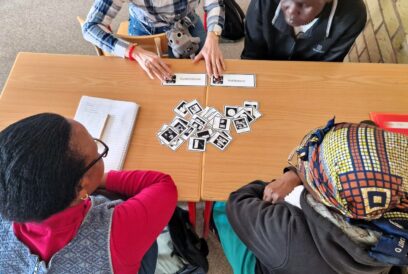

Technologies such as virtual reality are tremendously valuable tools, allowing players to be fully immersed in the situations they are learning about or training for.
Technologies such as virtual reality are tremendously valuable tools, allowing players to be fully immersed in the situations they are learning about or training for.
The US-based Institute of Play wants to unlock the power of games and play to transform 21st century education.
Killing zombies or taking out baddies with your cellphone could be more than just an adrenaline rush or a way to pass the time. It can actually help you learn new skills.
The New York-based Institute of Play is on a mission to prove that games and learning experiences rooted in the principles of game design can do just that.
Institute of Play is a group of game designers and researchers who originally came together a decade ago with the aim of promoting games as a tool to enhance personal and social development in learning. Today its main aim is to make learning irresistible by creating in students a hunger to learn more.
We believe in making learning relevant to the technologies that shape our lives.
The group wants to transform education through play and game – like learning principles, says the institute’s Co-Executive Director Rebecca Rufo-Tepper.
“We believe in making learning relevant to the technologies that shape our lives, the passions that fuel people’s ambitions, and the demands of life in the 21st century,” she says.

Games can provide motivating, engaging contexts for adults to deal with complex problems and take on real-world roles.
A unique learning environment
Game-based learning has received much global attention recently. From virtual reality-based geography lesson to tablet math games, it seems gaming is on every progressive educator’s wish list.
New departments focusing on game design are popping up at universities around the globe and many are using experimental technologies and unconventional game design choices.
Whilst learning through play may often be associated with children, for adults too the benefits are numerous. Games can provide motivating, engaging contexts for adults to deal with complex problems and take on real-world roles.
It’s not the games and technology themselves that are powerful, but rather the transformation and learning that can happen as a result of these tools being used in meaningful ways.
“Games, game design and the principles that underline them can help build critical 21st century skills like systems thinking, creative problem solving, collaboration, empathy and innovation, which have a unique relevance as social tools to rebuild the foundations of citizenship,” Rufo-Tepper says.
In addition to stimulating interest through playful exploration, game systems often allow players to grasp systems from an external viewpoint rather than an internal one, Rufo-Tepper explains.
“This allows players to see connections and leverage points that might have been previously missed,” she says.

The best games allow the player to learn by actually doing, without the player often realizing it.
Gaming needs to be used in meaningful ways
As with many innovative programs and ideas, the excitement around games and technology runs the risk of being implemented and replicated with adult learners without a focus.
“It’s not the games and technology themselves that are powerful, but rather the transformation and learning that can happen as a result of these tools being used in meaningful ways,” Rufo-Tepper says.
The best games allow the player to learn by actually doing, without the player often realizing it.
If a learning facility for adults wishes to implement games and play into its curriculum, it needs to look beyond using only points, leaderboards and the like, and create experiences where game mechanics and resulting social dynamics really emphasize the skills that need to be taught.
“This could be done perhaps through simulation and immersion. And it’s critical to remember that there always needs to be an ecology around a game to support the transfer of skills or concepts learned through games to real-world roles,” says Rufo-Tepper.
Learning by doing
Games can foster positive, authentic connections between team members, and can help build trust, unleash creativity and develop empathy. They can even create innovative products for businesses or an environment for a constructive feedback-giving.
The best games allow the player to learn by actually doing, without the player often realizing it.
Today it’s fully possible to make software that has complex models that people can tinker with and learn on-the-job as they play.
“As such, technologies such as virtual reality are tremendously valuable tools, allowing players to be fully immersed in the situations they are learning about or training for,” she concludes.
Author







